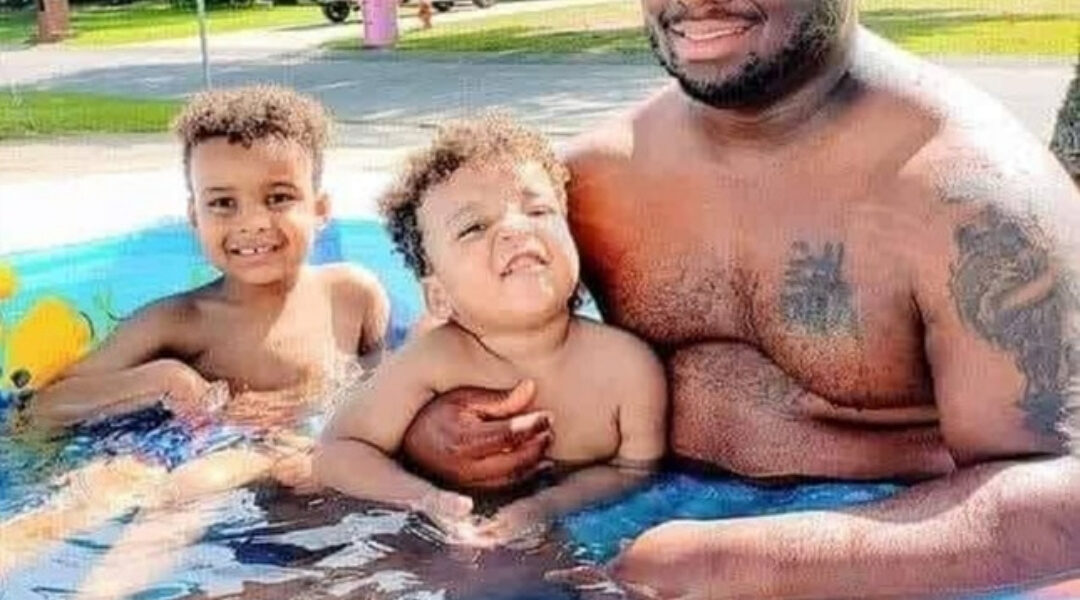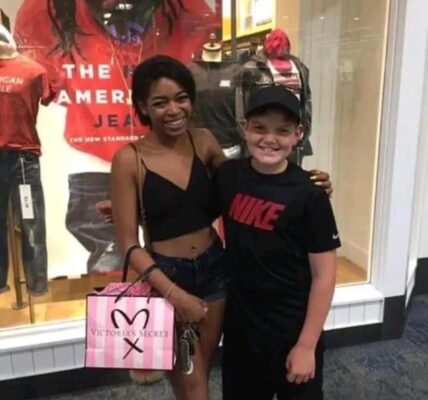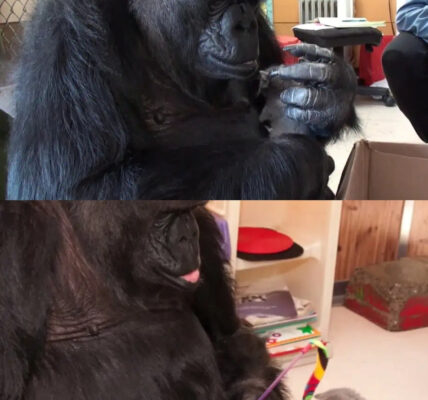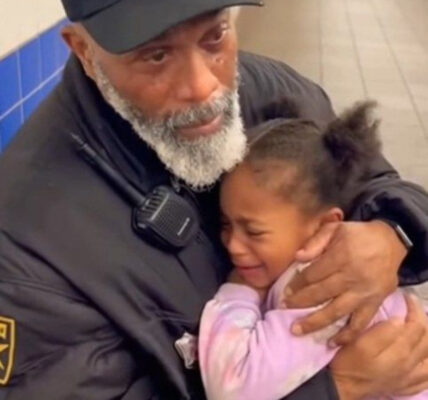
My husband is thirty-one years old. He’s the kind of man people describe as steady—the kind of man who reads every word carefully, who proofreads my papers until they shine, who knows the perfect balance of seasoning for pork chops and neckbones.
He grew up in a house so wholesome that “Harry Potter” was considered too worldly. He’s never touched drugs, not even weed. Never stolen a thing, not even when times were hard.
He’s a faithful man of God—serving at our local church, lending a hand whenever someone needs one. He treats me and our two sons like royalty.
But none of that mattered the night he became a suspect in Semmes.
That evening, he came home late from work, tired but thoughtful as always. He noticed my gas tank was nearly empty and wanted to do me a favor before morning. It was a simple act of love—one of those quiet gestures that rarely make headlines but mean everything in a marriage.
He grabbed my keys, kissed me on the forehead, and drove to the station just around the corner.
What happened next changed us forever.
He told me that when he pulled up to the pump, there was an older white woman filling her car across from him.
At first, he didn’t think much of it. But he noticed how she kept glancing over—her face tight, her movements uneasy. Then she got into her car, pulled away slowly, and parked a short distance away, still watching him. A few minutes later, she picked up her phone.
Moments after that, police cars surrounded him.
Blue and red lights flooded the lot, bouncing off the metal pumps and glass windows. The officers got out quickly, hands on their holsters, voices firm and commanding. They demanded his ID.
They asked what he was doing there. They asked where he’d been earlier in the day. Then they told him he “fit the description.”
When he asked what that description was, one officer said it flatly: “A Black man.”
That was it. Not a 5’7”, 220-pound man who loves WWE and the Temptations. Not a man with two car seats in the back of the vehicle. Just a Black man.
He told me later that in that moment, a cold fear crawled through his chest.
He wanted to speak—wanted to defend himself, explain, shout that he was a husband and a father, that he worked hard, that he was just trying to fill up his wife’s car—but every word felt like a risk. Every movement could be misread. Every breath could be mistaken for defiance.
The officers told him he could not leave. They circled around him. They looked inside my car as if searching for evidence of something that did not exist. And all the while, that woman sat in her car nearby, watching him like a criminal she’d personally captured.
Then, just as it felt like things might escalate, an older white man stepped forward from another vehicle.
He spoke to the officers—calmly, firmly. He said he had seen my husband earlier, that he had come from a completely different direction than the robbery they were investigating.
And just like that, the tone changed.
The officers relaxed. One even nodded. They told my husband he was free to go.
But he wasn’t released because he told the truth. He wasn’t released because they believed his words or saw the evidence right in front of them. He was released because another white man—someone they did believe—spoke on his behalf.
When he walked through our front door that night, I saw something in his eyes I had never seen before.
He looked shaken, hollow, and angry all at once. I asked what was wrong, and he told me everything. Every word, every gesture, every flash of those police lights burned into his memory.
He said he’d never felt so small.
He told me he wanted to scream—that he wanted to yell that he was a man, that his life mattered, that he had done nothing wrong. But he knew that anger would be twisted into a weapon against him.
“If I’d raised my voice,” he said quietly, “I might not have made it home to you and the boys.”
We sat in silence for a long time after that. Then we cried together. We prayed. We held each other, realizing that what we had both known in theory—what we had seen on the news, what we had heard from others—had just become our story.
My husband, the gentlest man I know, had been seen as dangerous for doing something as ordinary as pumping gas.
That night changed him. It changed me. It changed the way we look at the world.
Because when people say “it’s not about race,” I think about the woman who picked up her phone because she saw a Black man doing nothing but existing near her. When people say “the police only stop those who deserve it,” I think about my husband standing under flashing lights while our sons slept peacefully, unaware of how close they came to losing their father.
When people say “it’s not that bad anymore,” I think about the way he came home that night—shaken, humiliated, his dignity stripped away, his voice rendered meaningless until a white stranger gave it power.
We’ve healed since then, but not completely. Scars don’t vanish just because time moves on. And as we watch our little boys grow, we carry a quiet dread for the day they’ll be seen not as adorable children, but as threats.
This is what it means to live as a Black family in America.
We don’t get to forget. We don’t get to ignore it. We live it—every day, in ways big and small.
So when people dismiss the fear, the anger, the exhaustion of our community, they’re not just denying stories like ours—they’re denying our humanity.
All we ask is this: open your eyes, and open your hearts. Because until this country can look at a man like my husband and see the human being before the skin color, we will never truly be free.




